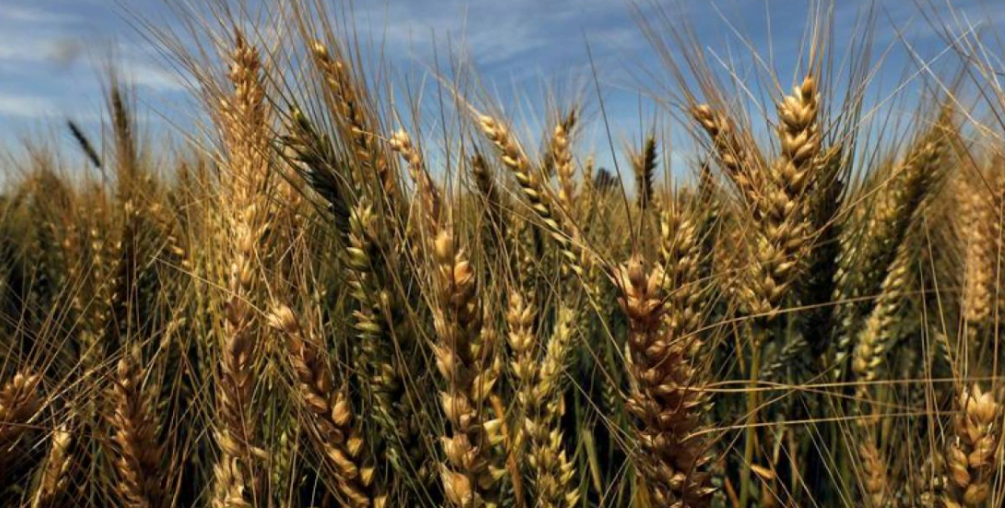FMAN set to release 4 wheat varieties
The Flour Milling Association of Nigeria (FMAN), in partnership with the Lake Chad Research Institute, is set to release four…

The Flour Milling Association of Nigeria (FMAN), in partnership with the Lake Chad Research Institute, is set to release four wheat varieties to farmers to boost local production.
The varieties are bread wheat (Borlaug-FMAN and NELOKI-FMAN) with yield potential of up to 7t/ha and maturity of 85-95 days; and Durum wheat (Bayoreca-FMAN and Cirno-FMAN) with yield potential of 6t/ha and maturity of 90-95 days.
The National Centre for Genetic Resource and Biotechnology (NACGRAB) approved the release at its 36th meeting of the Technical Committee on Naming, Registration and Release of Crop Varieties held at NACGRAB Moor Plantation, in Ibadan.
FMAN said the release of these varieties would revolutionize wheat production in the country by increasing productivity and at the same time satisfying the quality demand of the milling industry in the country.
- Immigration promotes 7000 personnel, redeploys 12 comptrollers
- I want to become Olubadan not beaded-crown wearing oba – Ladoja
Nigeria, one of the largest importers of wheat in Africa, spends billions of dollars each year to meet growing demand, which was expected to reach 6.06 million tons in the 2022-23 season, according to the US Department of Agriculture’s Foreign Agricultural Service.
Local production, however, was estimated at 160,000 tons of wheat in 2022–23, up from 90,000 in 2021–22, according to a report from the annual country analysis on the grains industry dated April 7.
To increase local production, FMAN, a partnership of flour millers, which include the Flour Mills of Nigeria Plc, Olam International/Crown Flour Mills Limited, Life Flour Mills Limited, Dufil Prima Foods/Pure Flour Mills Limited, Honeywell Flour Mills Plc, and Northern Nigeria Flour Mills plc, is working to boost the country’s wheat value chain.
Dr Aliyu Samaila, the national programme manager, said the association provides immense support to the development of the wheat value chain, playing a catalytic role towards improving output, yields and farmers, skills in modern agronomy practices.
He added that the association will continue to collaborate with relevant stakeholders in both the private and public sectors to demonstrate that Nigeria’s wheat production is not only practicable but also profitable.
“The interventions of FMAN over the past three years have yielded improved results with a significant boost in Nigeria’s wheat production capacities. Before the interventions, farmers recorded an average of 1MT/ha to 2MT/ha. However, there was a dramatic increase to an average of 3.2MT/ha in 2021/2022.
“An isolated yield of 7.2 MT/ha (the highest) was recorded by one of FMAN’s highly trained wheat out growers in Jigawa State. This was a significant improvement over the 4.75MT/ha highest yield of the previous year.
“The improved performance was achieved through the provision of technical support coupled with the training, supervision and regular monitoring of over 35,000 farmers; timely delivery of quality seeds, fertilizers and other inputs; planting at the right time; and, the assurance of guaranteed markets amongst several other initiatives which combined to make wheat farming a profitable venture.
“During the 2022/23 wheat season, the land area cultivated by FMAN’s out growers went up to over 4,000 hectares across seven northern states,” Samaila said.
He said FMAN has been collaborating with the major stakeholders in the Nigerian wheat value chain, such as the Federal Ministry of Agriculture and Rural Development, the Central Bank of Nigeria, National Agricultural Seeds Council (NASC), National Agricultural Extension Research and Liaison Services (NAERLS), Lake Chad Research Institute (LCRI) and the Wheat Farmers Association of Nigeria (WFAN), to motivate farmers and create an enabling environment for the development of local wheat production.
Through partnerships with fin-tech service providers, the group also promotes financial inclusion initiatives for smallholder farmers, including working with equipment service providers and a number of mechanization experts to increase harvest volume and quality to decrease post-harvest losses.
The national programme manager said the association’s out-grower programme is designed to empower wheat farmers by providing them with access to agricultural inputs (agrochemicals and quality-certified seeds) as loans to be repaid using grains from the out-growers farms.
“Over 4,000 farmers are currently participating in this initiative, which is being administered in seven northern states: Kano, Jigawa, Sokoto, Kebbi, Kaduna, Bauchi, and Gombe.
The association also maintains over 100 hectares demonstration farms in six northern states to ensure the application of appropriate technology adapted to local conditions with predictable outcomes based on research to help farmers determine how new varieties, products, or cropping practices compare to standard practices on their farms – the actual “Show & Do” approach to farming.
With regard to seed production, he said “there is adequate engagement with six certified seed production partners to ensure availability of adequate seed production which can cover 10,000 hectares during the next wheat season.
On research and development, Dr Samaila said the association has established a 10-hectare farm in Jigawa State dedicated to testing new seed varieties and improved agronomic practices, including collaboration with the Lake Chad Research Institute and the International Maize and Wheat Improvement Centre (CIMMYT) and the International Centre for Agricultural Research in the Dry Areas (ICARDA).
